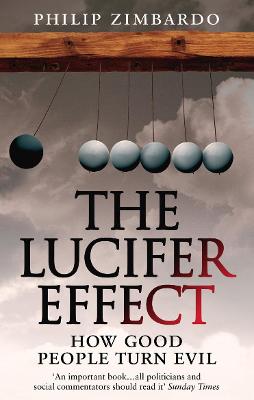Reviewed by Michael @ Knowledge Lost on
Then in 2003, news broke about human rights violations that were happening in Abu Ghraib, including torture and abuse to the prisoners by the United States Army and the Central Intelligence Agency. Philip Zimbardo appeared as a psychological expert during the legal proceedings conducted by the US Supreme Court. This lead to the writing and publication of The Lucifer Effect: Understanding How Good People Turn Evil. With a growing interest in psychology, when this book was recommended to me by a BookTuber (along with others) I knew I had to read this first.
I have already done a blog post on this book, regarding the concept of enclothed cognition. There is a lot of interesting things to learn about psychology within the book. However this was written to help people safeguard themselves; if we can understand just how easy it is to be manipulated and corrupted, we are more likely to notice when it is happening. For me, I felt most manipulated by the American government (this is also a problem with the Australian government as well) with the way they spin things, that lead to the treatment of prisoners. If you look at the trials that came out of the Abu Ghraib incident, many people were punished but people like Donald Rumsfeld, Dick Cheney or even George W. Bush never stood trial for their actions. The fact that Abu Ghraib or Guantanamo Bay are classified as Detention Centres so they do not have to abide by the Geneva Conventions is horrifying and makes me suspect of how my country treats detainees.
The Lucifer Effect is a very interesting book, I feel like I have gotten a lot out of it, although it will need to be re-read in the future. Philip Zimbardo has put a lot of information into the book, but I do wish that there was more information on some of the theories mentioned. I am fascinated by psychology theories and want to learn more on the topics. I have a list of non-fiction books to get through, that might help me develop a better understanding. I recommend The Lucifer Effect to everyone, it is horrifying to read how people treat others, but it is important to understand the situations and work towards building a better solution.
This review orginally appeared on my blog; http://www.knowledgelost.org/book-reviews/genre/non-fiction/the-lucifer-effect-by-philip-g-zimbardo/
Reading updates
- Started reading
- 5 August, 2015: Finished reading
- 5 August, 2015: Reviewed
